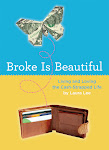People seem to be somehow unaware that their public musings are, well, public. I don’t know that the experts have a name for this disorder. Let’s call it Anonymity Syndrome.
I will share with you the tragic tale of one victim of this dreaded disease which I learned about through the web site of Houston television station KHOU. One day Jacki was living her normal life as a self-described “uninteresting teacher.”
After a hard day grading ungrammatical 9th grade essays, she would come home, feed the dog and fire up the computer. With complete faith in her lack of an audience, Jacki would type out reviews of The Gilmore Girls and Days of Our Lives. She worried that her students might watch The Secret Life of an American Teenager and get the idea that teenage pregnancy was cool. Jacki wasn’t the type of person who was featured in the news. World events happened somewhere else. She watched them on television.
Then, in September 2008, Hurricane Ike changed everything. No, not in the way you might think. Jacki was spared by the worst of the weather. Her house was not damaged, she had running water and power. She didn’t even have to go to work because her school was closed, but she was still getting a paycheck. In all, she had fared quite well.
She should have heeded the warning signs. Extra leisure time puts a person at increased risk of Anonymity Syndrome. Jacki was on the edge of a national story with nothing to do but blog. And blog she did.
“Life is great after a hurricane,” she wrote, “when nothing really happened to your house!”
Emboldened by her sense of solitude—she couldn’t even get her best friends to read her reviews of episodes of Big Brother—she went on to describe how she went around town collecting MRE’s, military rations distributed to hurricane victims who were without power and food.
“I think that I am falling in love with MREs,” she wrote, “They are pretty darn good… It’s so cool that you put a little bit of water in the bag with the food and in about a minute, there is hot food. This is great. I don’t have school and I’m getting free food!”
What Jacki hadn’t thought about before she hit “preview” and “post” was that people were going to read it. It would only take a few people with copy and paste functionality on their computers to share her newfound joy in free MREs with an audience she never imagined—people who did not know her, love her or call her a friend.
Some of those people, Texas residents who were an even bigger part of the Hurricane Ike story, did not take Jacki’s narrative in quite the way she intended.
Hundreds of comments started to appear. Some were threatening, harassing, unrepeatable. They threatened to turn her into authorities.
“How do you live with yourself?”
“Hope you choke on those MRE’s.”
Her blog became the stuff of local legend, and the “uninteresting teacher” was suddenly getting calls from reporters asking her to explain herself. She was a story on the television news.
When the blog disappeared, Jacki’s anonymity did not return. The angry posters merely moved to the khou.com story about her site and plotted to send letters of complaint to her employer by the hundreds. Jacki’s online hobby had come crashing into her real life with the force of a hurricane.
The story has a few lessons for us. First, if you’re lucky enough to be spared by a tragedy, and you’re surrounded by those who are not—keep it to yourself. Second, if you forget the first rule, at least keep your crowing to a respectably small circle of friends. Third, if you can’t manage to follow the second rule at least do not literally broadcast your good fortune. Fourth, don’t take food intended for people who just lost their homes and brag about it on a blog about your uninteresting life. Actually, that one should probably go first.
Another example of Anonymity Syndrome was reported by
MyFox yesterday. Steven loved to chat with friends on Myspace and blog about his adventures. One of his adventures involved stealing two monkeys from a wildlife compound. The Myspace page was set to public. The authorities investigating the case, being part of the public, found it fairly easy to track him down.
We've said it here a number of times, but it bears repeating. If you're doing something that is not entirely ethical or legal, it behooves to keep it to yourself.





















